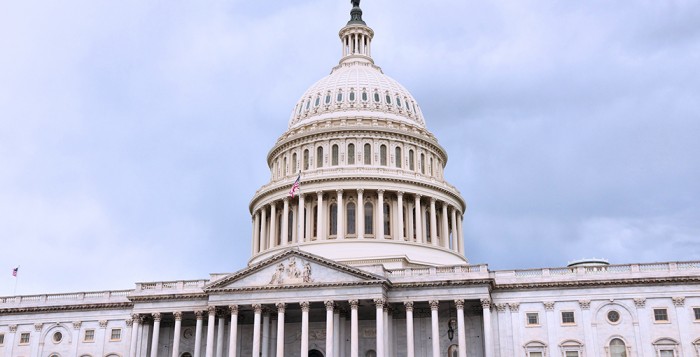CHIP
WellKids by RCPA Member PA Health & Wellness to Join CHIP Network
The Pennsylvania Department of Human Services announced that WellKids by RCPA Member PA Health & Wellness will join the network of managed care organizations that offer health coverage through the Children’s Health Insurance Program (CHIP). This marks the first CHIP re-procurement since 2013, expanding the number of affordable health coverage options for children and teens in Pennsylvania. Effective January 2026, CHIP will operate a network of nine managed care organizations, providing comprehensive health coverage for eligible children across the state.
CHIP serves children and teenagers up to age 19 who are not eligible for Medicaid, offering health coverage for free or at a low cost based on family income and providing a variety of insurance plans to best meet a family’s needs. WellKids by PA Health & Wellness will provide a full range of services, including preventative, routine, urgent, and emergency care for physical and behavioral health, as well as coverage for dental, vision, and pharmacy services.
Contact RCPA Policy Associate Emma Sharp with any questions.
Unclear How Much PA Stands to Gain From Feds’ $50 Billion Rural Hospital Program
RCPA Shares Update on Medicaid and the “One Big Beautiful Bill”
The passage of the “One Big Beautiful Bill Act” has made significant changes to Medicaid, the Children’s Health Insurance Program, and Medicare, with strict requirements to maintain Federal support and criteria to qualify and maintain enrollment in Federal healthcare programs. There are several key provisions that will result in hundreds of thousands of Pennsylvanians losing access to healthcare:
- “Community Engagement” Requirements which will require able-bodied adults to study, work, or volunteer for a minimum of 80 hours per month for expansion enrollees aged 19 – 64.
- There are exceptions to these work requirements for people who are: enrolled in Medicare; incarcerated (and for 90 days following incarceration); pregnant or receiving postpartum coverage; Urban and California Indians; are caretakers of dependents under the age of 14; veterans with a total disability rating; are “medically frail”; participate in SNAP and are not exempt from its work requirements; or who have a substance use disorder or a disabling mental disorder (though neither of those exemptions are clearly defined). In addition, individuals who are participating in a drug or alcohol treatment and rehabilitation program (as defined in section 3(h) of the Food and Nutrition Act [FNA] of 2008) are exempt. However, FNA defines drug addiction or alcoholic treatment and rehabilitation programs as “any such program conducted by a private nonprofit organization or institution.” With no clear guidance at this point on how an individual is determined to qualify as having an SUD, the definition of drug addiction or alcoholic treatment and rehabilitation program could be an issue for for-profit providers.
- States may request an exemption for 2027 and 2028 if they show a “good faith” effort to implement the program.
- Limits to certain non-citizen access to federal health services, which will prevent certain individuals from enrolling in or receiving Medicaid or CHIP benefits. Medicaid will no longer be available to refugees, asylees, victims of trafficking, or other people under temporary protected status, with certain exceptions.
- Eligibility redeterminations must be made every six months for Expansion enrollees. Individuals who are exempt from the community engagement requirements are also exempt from the bi-annual eligibility redeterminations.
Additional Resources:
- For a summary of the entirety of the Big Beautiful Bill, view the Comprehensive Holland and Knight Analysis.
- For a complete timeline, impacts on enrollees, providers, and the State, visit here.
RCPA Shares Medicaid and Federal Updates
The Trump Administration’s “Big Beautiful Bill” was passed by House Republicans on May 22 and contains significant Medicaid cuts that could leave millions of Americans without coverage as well as severely reduce access to care. The proposed bill also includes cuts to Medicare funding, new restrictions on federal loans for medical students, and provisions to create a permanent, inflation-based mechanism for annual updates to Medicare physician payments. The legislation now heads to the Senate, where it will face further debate by lawmakers.
The proposed legislation seeks to accomplish the following:
Medicaid:
- The bill introduces a two-year acceleration of Medicaid work requirements for able-bodied adults ages 18 to 64, which is slated to take effect no later than December 31, 2026, instead of 2029. States have the ability to implement these requirements earlier to secure quicker savings.
- Beginning October 21, 2027, states will be mandated to determine Medicaid eligibility every six months for people in the expansion population.
- Medicaid and CHIP federal financial participation is prohibited under the bill revisions for people who fail to verify immigration status, citizenship, or nationality in the designated “reasonable opportunity” window.
- States will also be required to cross-check their Death Master File quarterly to confirm deceased individuals are disenrolled. Should errors occur, there will be reinstatement provisions.
- The Social Security Act is amended to cut retroactive Medicaid coverage from three months to one month before the application date.
- Federal Medicaid and CHIP funding is prohibited for “specific gender transition procedures” provided to people under 18 years of age.
- Eligibility for increased federal medical assistance percentage for states that are newly expanding Medicaid will be wound down. To qualify, states must start expansion by January 1, 2026, to restrict late expansion states from receiving an elevated match rate.
- New rules for waiving the uniform tax requirement for Medicaid provider taxes will be imposed, which tightens conditions for states to use the financial tools.
Medicare:
- A proposed staffing mandate is halted under the bill for long-term care facilities that receive Medicaid and Medicare funds.
- The bill promotes the use of artificial intelligence to recover and reduce improper Medicare payments.
- A May 20 report from the nonpartisan Congressional Budget Office found that the bill could cut nearly $500 billion over the next decade in Medicare funding.
- The budget bill includes provisions to increase Medicare physician payments by an estimated 2.25% in 2026. This would be achieved by tying payments to 75% of the Medicare Economic Index. Starting in 2027, annual payments would be adjusted by 10% of the index, establishing a permanent, inflation-based update mechanism.
- Under current law, physician pay is set to increase by just 0.25% in 2026 and 2.5% by 2035. The proposed changes would boost payments to 4.3% by 2035 instead. Physician groups, including the American Medical Association, strongly support the provision, calling it a critical step toward restoring stability after years of payment cuts.
- The bill also adjusts the Medicare Physician Fee Schedule’s conversion factor, a key formula used to calculate final physician reimbursement. While the legislation introduces inflation-based updates, changes to the conversion factor could offset those increases and slow long-term payment growth. Physician groups have welcomed the update mechanism as a step in the right direction, though they say further reforms are needed to ensure physician payments fully reflect inflation and keep pace with rising practice costs over time.
CMS:
Outside of Congress, the Center for Medicaid Services (CMS) has also made announcements that could threaten access to healthcare:
- On May 27, CMS announced increased federal oversight to prevent states from using federal Medicaid dollars to cover healthcare for undocumented immigrants for anything beyond emergency services, which violates federal law.
- CMS outlined plans to increase audits of state Medicaid spending, eligibility systems, and financial controls, with recoupment of funds if misuse is found.
Please contact Emma Sharp with any questions.
CMS Releases Updated Fast Facts Resource Document
The Centers for Medicare and Medicaid Services (CMS) recently released their CMS Fast Facts resource document for 2022 – 2025. The document includes summary information on Medicare and Medicaid total program enrollment, utilization, and expenditures, as well as the total number of Medicare providers, including physicians by specialty area.
There are a number of new items provided in 2025:
- Medicare Populations, Calendar Year (CY) 2024
- Medicaid & Children’s Health Insurance Program (CHIP) Populations, CY 2024
- Medicare Deductibles, Coinsurance, Premiums, CY 2025
- Original Medicare Persons Served and Payments by Type of Service, CY 2023
- Medicare Part D Utilization and Expenditures, CY 2023
- Medicaid & CHIP Payments by Type of Service, FY 2023
- Medicare Institutional Providers, CY 2023
- Medicare Non-Institutional Providers by Specialty, CY 2023
- Medicare Durable Medical Equipment Prosthetics, Orthotics & Supplies (DMEPOS) Providers by Specialty, CY 2023
- Medicare Prepaid Contracts, February 2025
- National Health Expenditures, CY 2023
- CMS Financial Data, FY 2024
MyChesCo: Pennsylvania Expands Telemedicine Access With New Law
CMS Issues FAQ on Extended Postpartum Coverage in Medicaid and CHIP
The Centers for Medicare & Medicaid Services (CMS) has released a set of frequently asked questions (FAQ) supplementing the 2021 State Health Official (SHO) letter about extending postpartum coverage in Medicaid and the Children’s Health Insurance Program (CHIP). The FAQ offer guidance to state Medicaid programs on the new option allowing states to provide 12 months of extended postpartum coverage to pregnant individuals in Medicaid and CHIP. They clarify what constitutes full benefits during this extended eligibility period and address whether states need to submit a state plan amendment (SPA) for coverage modifications. For more details, view the FAQ here.
Disaster Relief Medicaid Act (DRMA) Introduced in Congress
The goal of DRMA is to ensure access to Medicaid/CHIP assistance for survivors of major disasters and public health emergencies who have to evacuate across state lines.
Along Senator Casey (PA) Co-Sponsors in the Senate are: Blumenthal (CT), Welch (VT), Van Hollen (MD), Gillibrand (NY), Warren (MA), Brown (OH), Sanders (VT), Fetterman (PA), Schatz (HI), and Duckworth (IL).
Along Congressman Panetta (CA) and Takano (CA), Co-Sponsors in the House are: Tokuda (HI), Crockett (TX), Blunt Rochester (DE), Holmes Norton (DC), Soto (FL), and Moore (WI).
Read the one-pager on DRMA here.
You can join the hundreds of organizational and individual endorsers.
More than 90 million people nationwide benefit from Medicaid and CHIP, and they’re at risk of losing it when the next disaster strikes! Contact your representatives and ask them to support the Disaster Relief Medicaid Act.
DHS Seeking Public Comment on Managed Care Quality Strategy for the Commonwealth
The Department of Human Services (DHS) has made the Medical Assistance (MA) and Children’s Health Insurance Program (CHIP) Managed Care Quality Strategy (MCQS) for the Commonwealth available for public review and comment. The MCQS is an updated version of the previous strategy submitted to the Centers for Medicare and Medicaid Services (CMS) in December 2020 and accounts for the ongoing post-pandemic delivery system pressures that have affected how managed care organizations (MCOs) deliver care. The MCQS may be viewed online. Comments may be submitted via email, and those received within 30 days will be reviewed and considered. Additional information is available on the Pennsylvania Bulletin.
If you have any questions, please contact Fady Sahhar.

















